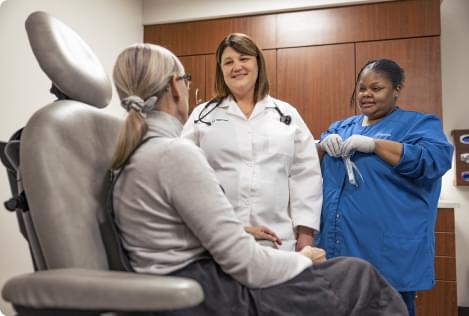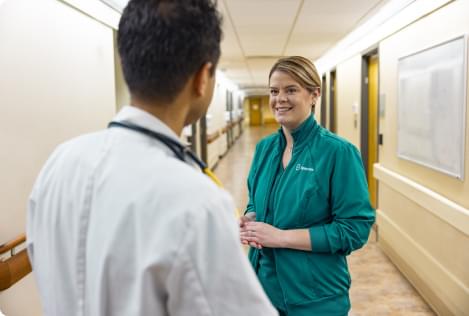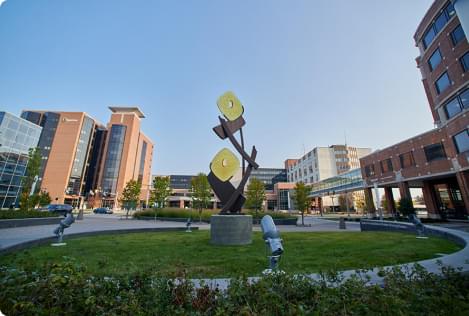Speech and Language Therapy
Disorders of speech and language can interfere with a child's ability to communicate with others and to participate socially in the community. Our team evaluates and treats disorders of speech intelligibility, fluency (stuttering), apraxia of speech, and receptive and expressive language development. These disorders can result from delayed development, autism, hearing loss, genetic syndromes, disease, or injury. Your therapist will work with you to develop a comprehensive plan to address the needs of your infant, child, or adolescent.
Benefits:
- Improved speech intelligibility
- Improved language comprehension
- Increased ability to express thoughts and ideas
- Increased speech fluency
- Reduced communication frustration
Oysphagia (Swallowing) Therapy
Disorders of swallowing can interfere with a child's ability to eat an age-appropriate diet or to manage food and liquids appropriate for their age and developmental level. Swallowing therapy will address oral-motor delays, sensory aversions, and texture tolerance. Recommendations will be made to ensure your child can enjoy nutrition to their ability level while maintaining their health and safety. If recommended, our team can perform Videoflouroscopic swallow studies to evaluate your child's ability to chew and swallow safely.
Benefits:
- Increase ability to manage age-appropriate foods and liquids
- Reduce reliance on supplemental feeding methods
Cognitive Rehabilitation Therapy
Cognition includes memory, focus and concentration, mental planning and organization of information, and higher level thinking skills. These skills can be affected by a traumatic brain injury, surgery, stroke, or other illness. Our therapists will work with your child to help them regain skills in these areas and to learn strategies to assist in their daily functioning at home, in school, and in the community.
Benefits:
- Improved focus and concentration
- Improved memory
- Improved ability to plan and organize
- Strategies to increase mental organization
Cleft Palate Clinic
Our Speech Pathologists participate in the Mid-Michigan Craniofacial Anomalies Clinic, assessing the speech, language, and feeding needs of children with clefts of the lip and palate, as well as other craniofacial anomalies. Other professionals that provide care at this clinic include pediatricians, orthodontists, otolaryngologists, social workers, dieticians, and dentists. We make referrals and recommendations for additional services as appropriate.
Benefits:
- A multi-disciplinary team working with your child
- Speech Pathologists that address oral motor and feeding issues associated with cleft lip and palate, as well as other craniofacial abnormalities
- Speech Pathologists that address the speech and language development of children with cleft and other craniofacial abnormalities
- Referrals for additional speech, language or feeding therapy as appropriate
- Collaborative relationships with local schools and other facilities to help meet your child's needs
Augmentative and Alternative Communication
Children without functional verbal or sign language may be candidates for augmentative or alternative communication devices or techniques. Our team is able to evaluate your child and make recommendations as to the best device or technique to assist in communication. We also provide training to help the child and family learn to use a communication device most effectively.
Benefits:
- On-site Speech Pathologists that evaluate a child's needs for alternative or augmentative communication
- Family training in using a communication device
- Collaboration with Occupational Therapists on staff to help evaluate a child's needs and train the family in using the device
- Collaborative relationships with device manufacturers to assist in choosing the most appropriate device



